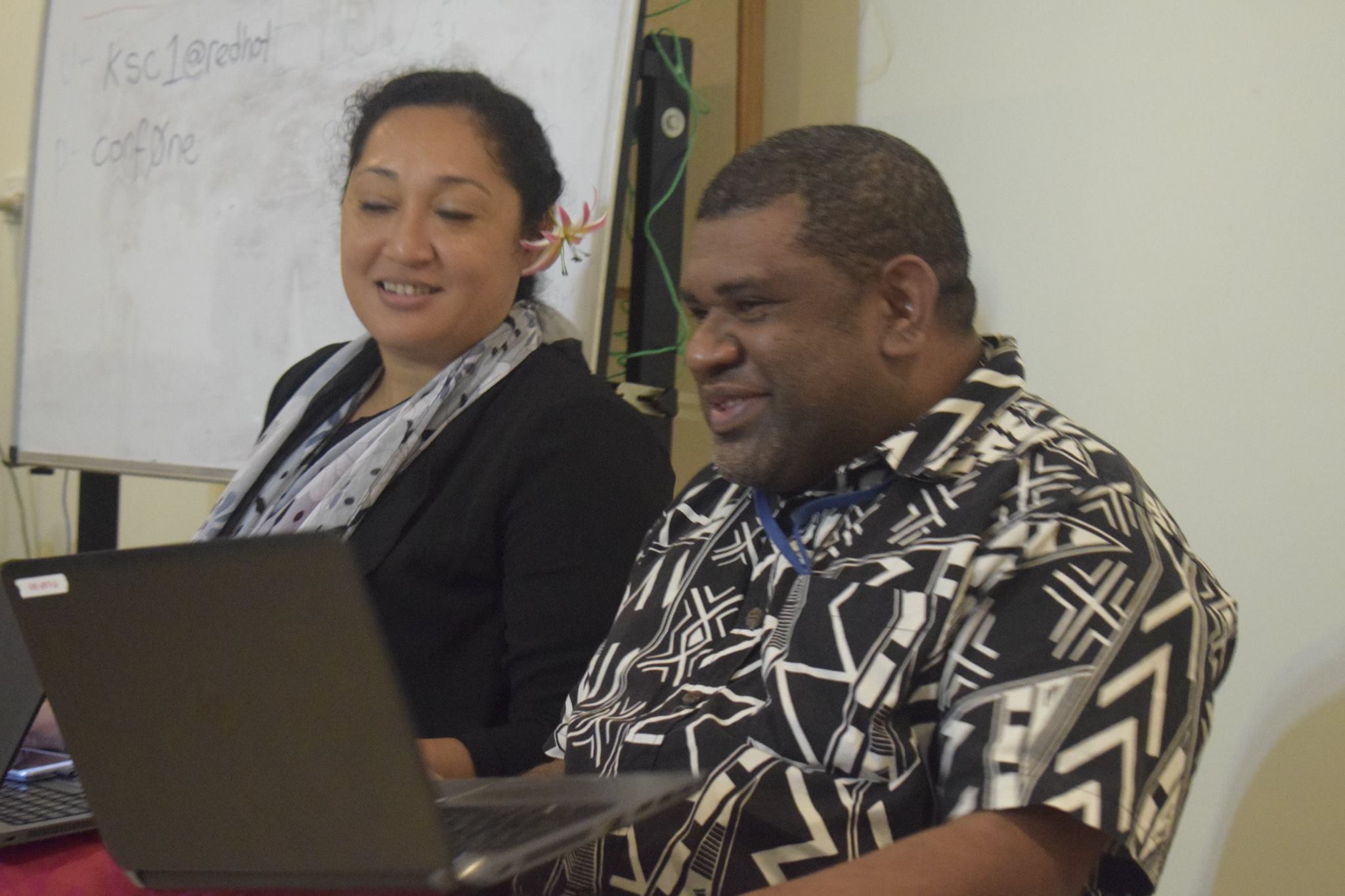
By: Joshua Lafoai - (Honiara, Solomon Islands)
The traditional knowledge is being used by Meteorology experts to better understand weather patterns in the region.
Traditional knowlege is being collected, stored and verified as part of a project by Met services in the pacific along with the Secretariat of the Pacific Regional Environment Program (S.P.R.E.P).
The name behind the project for S.P.R.E.P is Climate Traditional Knowledge Officer Siosinamele Lui who says the initiative is an important push to discovering traditional techniques that Pacific ancestors used to determine climate variability and changes in the past.
“There is a need to bridge that gap between our people’s traditional knowledge and the modern technology we have today,” she said.
“The fact is that most Met offices don’t have records, but that information we find in the traditional knowledge that our pacific people hold,” she added.
The data collection is from five countries in the Pacific including Samoa, Tonga, Vanuatu, Niue and the Solomon Islands. It is originally an initiative ignited by the Australian Bureau of Meteorology and transitioned to Met services in the Pacific with the support of S.P.R.E.P.
“What were doing is collecting the information, storing them for preservation, and verifying them with the science we have today,” she said.
The process though is still in the works as S.P.R.E.P and the Met services in the five countries continue to meet with the communities in these five countries.
“For Samoa, we have had our Met service brought in community members to meet with us and to bring in their knowledge on how they determine seasons, and we compare and contrast them with the science we use,” she said.
Lui says this is where the farmer and fishermen of the pacific islands are most important as they are the climate traditional experts in each country.
“Traditional knowledge has been around way before technology and its how we have been able to cope with the many climate related challenges we faced,” said Mr. Salesa Nihmei Kaniaha, Meteorology and Climate Officer for S.P.R.E.P.
“There is a need to collect, and align this knowledge with what we have and then be able to use them in keeping track of weather patterns and to predict weather variability in the future,” he added.
In Niue, the initiative has become a solution to their fears of losing traditional knowledge.
“When we collected data and information from Niue, they asked us to collect and store this information for future reference as they needed to preserve their traditional knowledge,” said Ms. Lui.
Lui says the problem stems from the majority of Niueans migrating out of the country leaving very few to pass the knowledge to.
“So were not just research and comparing, the project will end next year but we will act as a storage for this knowledge so we can have a reference for research and use in the future,” added Lui.
She was referring to the Pacific Climate Change Center that is being established in Samoa.
The Met services in the five countries are the front drivers of the initiative while S.P.R.E.P provide the expert support and database for storage.